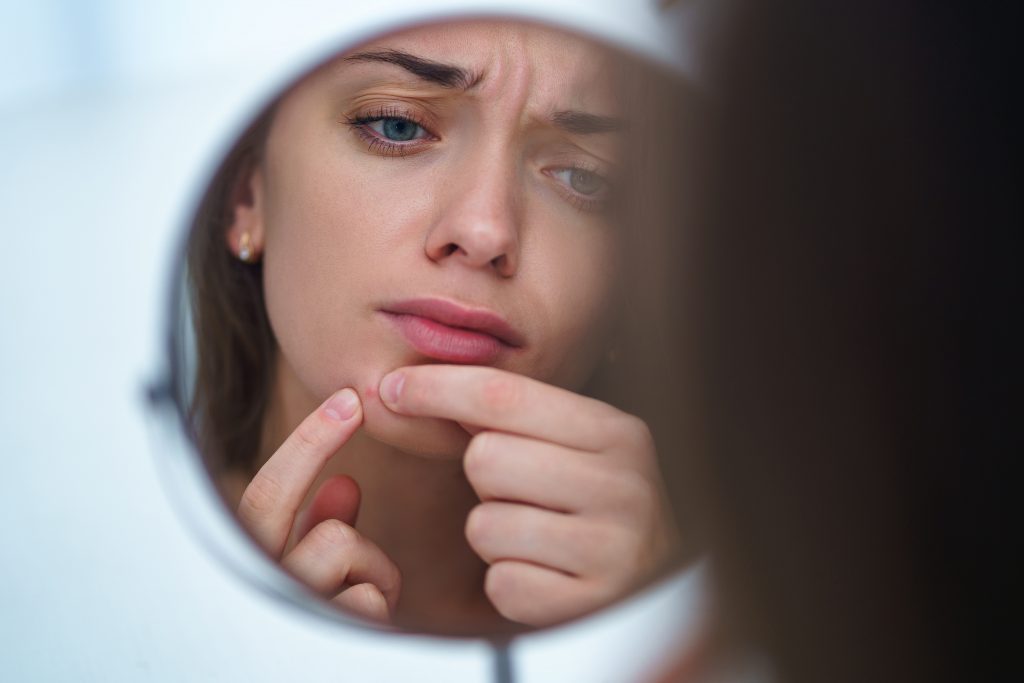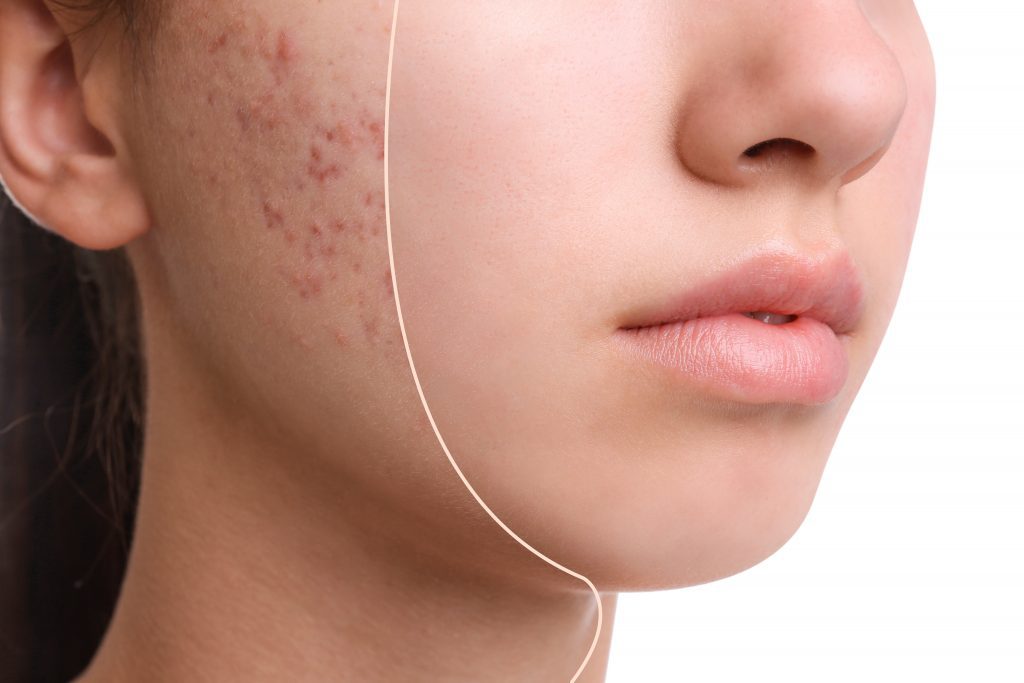Acne is something that affects nearly everyone at some point in their lives. Their signs depend on how severe your case is. For instance, you may have both blackheads and whiteheads on your face. Blackheads are open plugged pores whereas whiteheads are closed ones. Another symptom of acne is soft, red bumps that are called papules. Pimples are acne signs too; they’re papules with pus at the end.
Acne occurs because of several factors, such as hormonal changes. During puberty, teenagers experience breakouts because of an increase in hormones known as androgens. Even middle-aged women can have breakouts due to hormonal changes. Other factors that lead to acne include foods high in carbohydrates (like chips, bread, and bagels), stress, and some medications with lithium, testosterone, or corticosteroids.

Having acne can be frustrating to deal with, for it feels like it’s never going away. Once you go through it, it may take some time before your skin is back to normal. It could take weeks, if not months, of continuous effort to take care of your skin. However, all is not lost—acne will eventually go away, as long as you follow a healthy skincare routine.
Here are some of the different ways that can help you avoid acne more effectively:
- Try Blue Light Therapy
Blue light therapy is a non-invasive procedure used to treat mild to moderate conditions of acne. It uses a device that emits blue light, which helps kill bacteria under the skin and reduces inflammation. It disrupts the processes in acne through photoexcitation and cellular dysfunction in bacteria. As a result, it will inactivate acne on the skin surface and the pores.
The treatment may take up to a few weeks before you can see any significant changes in your skin. It can also be combined with infrared light to reduce oil production that may block pores.
To learn more about blue light therapy, look at this website or other reliable sources. Note that if you do decide to use this procedure, it’s essential to discuss it with your doctor first to ensure it’s safe for you.
- Wash Your Face Twice A Day
You should wash your face twice a day, especially after sweating or exercising. Sweat clogs the pores on the face, causing breakouts or aggravating existing pimples.
When you wash your face, use mild soap since it doesn’t remove too much oil, preventing dry skin. You should also gently massage your skin with circular motions. Don’t scrub. Rinse well and wash with fingertips instead of a washcloth or mesh sponge, which can irritate skin and cause more breakouts. It’s also advisable to use oil-free cosmetics, sunscreens, and moisturizers.
- Shampoo Regularly
Excess oil in your hair can be a significant concern for your skin. Once the oil comes into contact with the skin, there’s a high chance that acne will develop. Hair products, such as hair gel or sprays, can be a major cause of acne too, especially when they touch your face or are applied close to the hairline.
Therefore, if you have oily hair, shampoo daily until your acne clears up. Then switch your routine to two to three times a week to keep your scalp clean and oil-free. People with dry hair do not need to shampoo daily unless their hair gets greasy quickly; once or twice is usually enough for them.
- Avoid Picking Or Popping Pimples
It’s tempting to pick or pop your pimples, but it’s never a good idea to play dermatologist. Once you pick or pop it yourself, the red mark could turn into a scar. Even worse, when you try to press the plug, oil, or puss out of your pore, you risk pushing the bacteria deeper or spreading it around underneath your skin, which will lead to more pimples. So, let the acne heal naturally, even if it makes you feel uncomfortable.
Furthermore, avoid touching your face, especially if your hand isn’t clean, as bacteria will thrive on your skin.
- Talk To A Dermatologist
One of the best ways to avoid acne is to consult a dermatologist. A dermatologist can help you create a personalized skincare plan to treat and prevent acne. Aside from developing a skincare plan, they can provide helpful information about proper care of your skin and what products are good for your skin type.
For example, if you want to use antibiotics to fight acne, you’ll need a dermatologist to recommend the right antibiotic. The type of antibiotic will depend on the severity of the acne. And with a prescription and dermatologist’s advice, you’ll be aware of the side effects and how best to deal with them.

Conclusion
Acne can be a painful, long-lasting, and sometimes embarrassing experience for many people. But on the upside, they can be prevented or treated effectively. All these methods will help you take better care of your skin and look your best.


